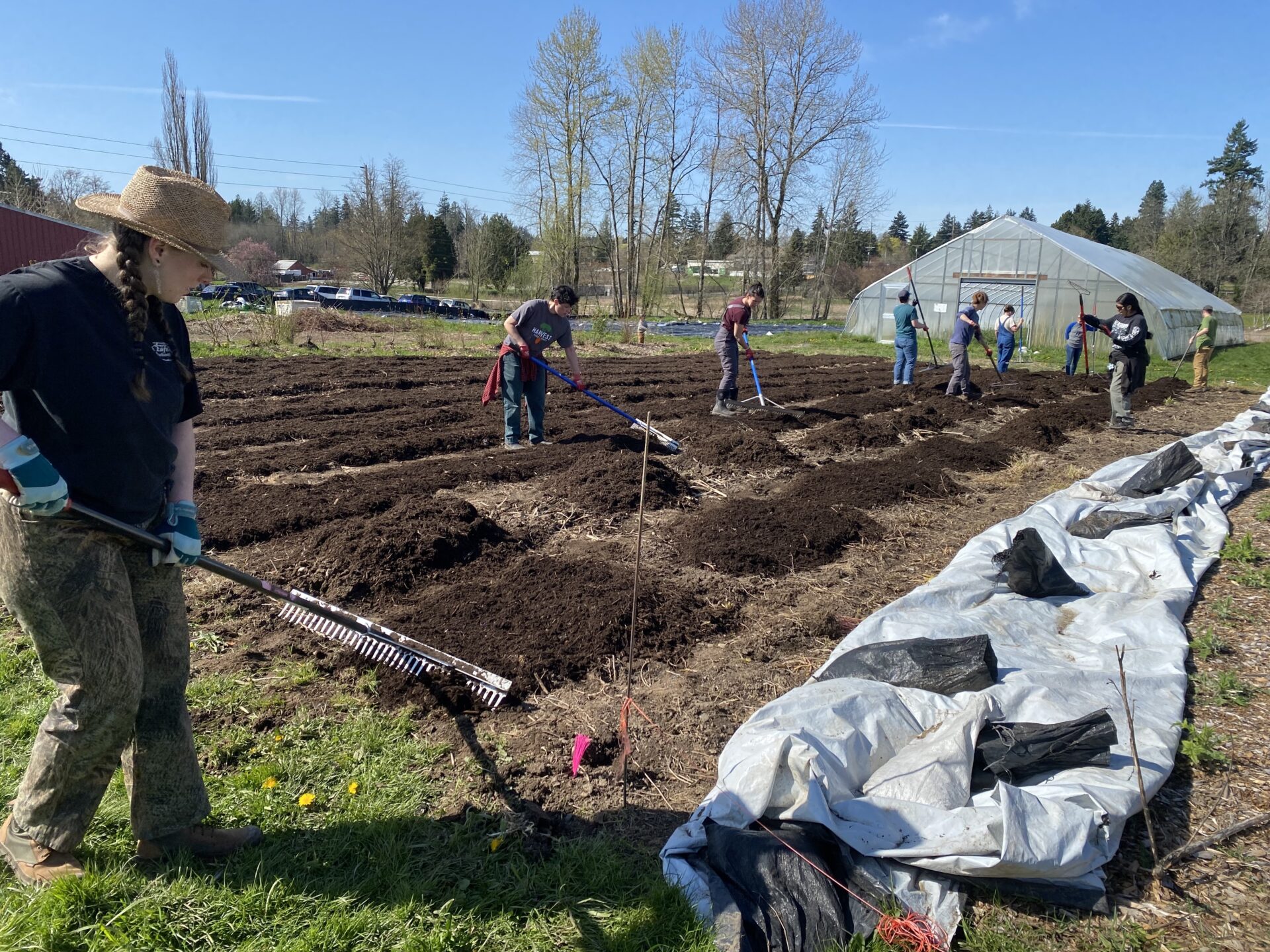News
Pierce Conservation District: Q&A with The Russel Family Foundation

Pierce Conservation District (PCD) conserves and restores Pierce County’s natural resources benefiting both urban and rural communities. PCD’s urban and rural agriculture program, Harvest Pierce County, invests in people to foster and sustain an equitable and healthy community-based food system.
1. Can you provide more details about the specific training and education programs that Harvest Pierce County offers to aspiring farmers through the Farm Foundations program? How do you tailor these programs to meet the needs of participants with diverse backgrounds and identities, particularly those from BIPOC and LGBTQ+ communities?
Farm Foundations is a cohort-style farm training program that gives participants both hands-on and classroom education covering foundational topics including, but not limited to agroecology, soils, botany, crop planning and weed management. We are also intentional about building community both within the cohort and within the broader farm community by inviting program alumni and other local farmers to speak on farmer panels. These relationships are built upon during the 8-10 farm tours that we coordinate each season for participants to see other successful farms.
Since the inception of the program, we have had an explicit goal to address systemic racism by including people historically excluded from agricultural opportunities, and have prioritized the participation of BIPOC, LGBTQA+, and individuals lacking reliable access to food. We are implementing various strategies to achieve this goal:
- Accessibility – Our free program, welcomes participants of all ages and is designed to accommodate individuals with jobs, requiring only a low commitment of 5 hours per week. Additionally, all participants take home food every time they come.
- Educational Content – We provide honest and informative content that addresses the history of agriculture, highlighting the injustices related to land theft and the exclusion of many non-white farmers from government programs.
- Representation – The entire Pierce County District Farm Program staff is BIPOC, reflecting a diversity of backgrounds and lived experiences. We prioritize amplifying the work of other BIPOC farmers by inviting them to speak or host farm tours.
- Cultural Diversity – We grow a variety of non-standard crops that are culturally significant to different communities and share the traditions and heritage tied to these crops.
- Feedback – Annual surveys are collected with all participants, allowing us to continuously implement improvements that enhance the program and improve participant experience.
2. How does the Urban Farm pilot project plan to address the challenges of establishing a successful farm on under-utilized urban land and serve as a model for food production in food deserts? What specific infrastructure improvements and staffing requirements are necessary to ensure the project’s success, and what metrics will you use to measure progress toward your goal of a fully successful farming season in 2024?
Our Urban Farm Program is addressing challenges at the pilot site in ways that can serve as a model for future locations. To establish the site, we utilized our organizational capacity to navigate bureaucratic systems, securing access to land and providing insurance coverage through a lease agreement. We also facilitated access to grant funding for startup costs and offered staff support for technical assistance and volunteer recruitment.
However, we underestimated the growing pressure on urban sites particularly the need for heightened security. Beyond water access, the pilot site (and future sites) need secure fencing and storage, as well as access to resources for season extension, and consistent staff support for technical assistance. To measure our progress, we will track metrics such as pounds of produce harvested, distributed, sold, farm-generated revenue, acreage actively cultivated, and levels of community engagement.
3. Who are your core partners in this food and farm ecosystem? And do you have ideas about how to connect and expand the local and regional ecosystem?
Our Farm Foundations program operates in partnership with the Franklin Pierce Farm, and the Mother Earth Farm (owned by the Emergency Food Network), while also engaging with a network of local farmers who serve as guest speakers and tour hosts. For the Goss Incubator, we were accepted into the Washington Farm
Accelerator Program hosted by the NW Ag Business Center, which has expanded our connections to a broader network, including a similar project in King County (Horseneck Farm). We also work closely with the Washington Farmland Trust and the Farm to Farmer program, both of which are key allies in our efforts to support the next generation of farmers.
4. What are your top priorities this year/the next few years?
Our top priority for the past several years has been building out the necessary infrastructure—water, electricity, coolers, storage, greenhouses, and more—to eliminate barriers and help our farmers can achieve their goals. While we still have some work to do, particularly at our Urban Farm site, we have made significant progress. Now, we are shifting our focus towards investing in programmatic development, relationship building, and providing additional support for our farmers. It’s important to the team that we develop systems and resources to not only ensure the land is well cared for, but also create a sense of support and well-being for the farmers.